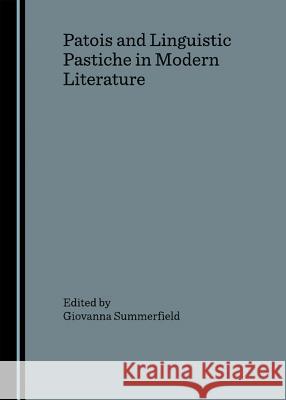Patois and Linguistic Pastiche in Modern Literature » książka
Patois and Linguistic Pastiche in Modern Literature
ISBN-13: 9781847182111 / Angielski / Twarda / 2007 / 169 str.
In an era of globalization and European standardization, dialect, patois, and linguistic pastiche are marks of identity, of individual and regional nature. Paraphrasing the words of Luigi Pirandello, one tends to use the standard national language to express the concept, while one opts to use one's regional dialect to express the feeling. The literary tradition has always accepted language mixing. Linguists and literary critics have studied this phenomenon from different perspectives. No in-depth treatment, however, has been offered so far as to the causes, conditions, consequences, and limits of language mixing from both the linguistic and literary points of view. The aim of this book is to start to fill this lack of analysis. Through a plurality of literary subjects, perspectives, and linguistic environments, this publication provides an overview of the linguistic and cultural contributions which underline, in turn, the importance of dialect use and conservation. This book recognizes the international and topical scope of interest in the academia and the public at large both through the contributions made by the authors of the respective essays, who come from various parts of the world and from a wide range of disciplines, and also through the international and topical importance of the perspectives offered by these contributions. Contributors offer analysis of selected literary and cinematic works which reveal the intricate interweaving of morphosyntax, semantics, and pragmatics of various dialects, Italian, French, English, and other languages that contribute to invented codes, which, in turn, provide material for the construction of invented worlds. This publication is a must for all literary scholars, linguists, and for all students of foreign languages, linguistic and literary studies. It is a unique collection of perspectives and topics of interest to all language and literature aficionados.











